|
I’ve been watching a documentary series about the history of film. It’s fascinating. It looks at films from around the world showing how each era had its own influences and influenced future eras. It is getting me to look at movies in a new way. I have always loved movies. As a child and teenager, I walked to the local movie theater every weekend for the children’s matinee. I could see two movies for a dollar and could see the same two over again if I wanted. I probably saw all the Disney movies as well as The Three Stooges, even James Bond and The Beatles’ movies. I was saddened to learn that iconic theater that had been open since the 1920s had closed. I have many fond memories from there. At home, my parents also loved movies. Dad liked the old movies, often in black and white. Mom liked watching the 4:30 pm movie on weekdays. If given a choice, Mom and Dad would often choose a movie over a TV show. I saw all the movies from the 30s, 40s and 50s in addition to the new ones being made.
Later, I was within walking distance to the Spectrum Theater in Albany, NY. My partner did their maintenance and got free movies for us. Once again, I was able to pursue one of my favorite pastimes. When I moved to Petersburgh, NY and became a senior citizen, movies at a theater in Bennington, VT, only a half hour drive away, were only five dollars. So, I went fairly often. Then the pandemic hit, and I stopped going to theaters. Watching movies at home is certainly convenient, but not the same as sitting in a theater. I missed the theater vibe. Unfortunately, the pandemic also affected my business adversely and left me on a limited income making the price of today’s tickets unaffordable for me. Recently, my partner and I decided to go back to our favorite theater in Bennington and were pleasantly surprised to learn that they did a number of upgrades including installing recliners with heated seats. The price of tickets went up a little to six dollars plus extra for the recliners, but they are still affordable. Now I’m just waiting for the great movies to be released. And, if you love movies like I do, I highly recommend watching The Story of Film - An Odyssey on Amazon Prime.
0 Comments
I had an interesting revelation today. I try to write every day and, like with so many other things, it is often a struggle to stay on track. I always seem to wait until the last minute to get things done, if they get done at all. I’ve always wondered why I can’t stay focused the way so many others seem to do. My partner is a dynamo. He stays busy all day accomplishing amazing things. But I can’t seem to manage it. I was catching up on overdue things today and was reminded of a recurring nightmare I used to have as a kid. It would come once or twice a week for years and was terrifying. In the dream, I’d been cursed by a woman. She said that everywhere I stepped the ground would turn to quicksand. As I ran away trying to go home, everyone threw rocks at me and screamed to get away because of the quicksand. When I finally reached my home, the house was sinking in a pool of quicksand. I didn’t recognize the man and small child on the roof who were yelling at me to go away. That’s when I woke up.
Many years later, when I was living in Santa Cruz with Paul Cavanaugh and our baby daughter, I had that dream again. This time I recognized the man and child and woke Paul up to tell him we had to make plans to move. I was sure it was a warning. It was them on the roof. Half asleep, he tried to assure me that it was just a dream. “Go back to sleep,” he suggested. But I couldn’t sleep. I’d had prophetic dreams before that warned of disaster, and I knew I should listen. That morning Paul went out to get the newspaper as he did every day. He came rushing in to show me an important article. It was a scientific report determining that if a big earthquake hit Santa Cruz, the land there would turn into quicksand. Needless to say, we started making plans to relocate. An earthquake did hit Santa Cruz much later than we had been there, and the neighborhood we lived in did turn to quicksand due to its proximity to the shore. We were sure we’d made the right decision. I always thought that was the end of it but was also puzzled as to why I would dream about it repeatedly during my childhood. It seemed like a crazy early warning system. Today, I was writing about the struggle I have with staying motivated. I wrote that I feel like I’m slogging through a swamp. Then I remembered the quicksand and realized I constantly feel like I’m being sucked down in quicksand. That’s one reason I smoke pot. It takes me out of that mire. When I’m not fighting against that quicksand, I have the energy to function in other ways. I can create, do chores, even going out is often a struggle. I used to think it was emotional. I came out of a dysfunctional and violent home, and throughout my life I’ve experienced trials and tribulations that you usually only hear or read about and certainly too many to write about. Now I think it’s more than that. I’m sure there’s a medication that people take now. But when I was young, I was told I was just lazy, antisocial, over-sensitive... I could go on and on. In reality, I guess I just need a little helping hand sometimes. We’re having a late snowstorm that has dumped over a foot of snow already with snow still falling. I went out snowshoeing earlier trying to create walking paths to the generator and firewood. It’s a heavy snow giving me a good workout. It took down two big sumac trees and a huge cherry limb off the ancient cherry tree. The “Finest Man” already cleared that limb off the driveway before I even got outside. He had such a great attitude about it explaining that it was next year’s firewood that he doesn’t have to haul out of the woods. The plow struggled getting up the road, and we’re not planning to go anywhere except maybe for a walk, which is fine with me. I love hunkering down in the winter. I’ve been working on my book, having to cut out a lot to make it a more reasonable length. It’s tough to decide what to leave in and what to sacrifice. Today, as I was outside enjoying the snow, I started remembering snowstorms from my past and decided to share some of those stories that won’t make the cut.
One early memory is of taking my younger brother sledding. We lived around the corner from Mulberry Street which was a long hill. In the late 50s and early 60s, most cars didn’t go out in the snow unless necessary. Because there wasn’t much traffic, the neighborhood kids sledded down that street calling out “car,” if there was one approaching. Mom usually took us out, but one day she let us go out without her. I was given strict instructions to watch out for my brother and not let him go down the hill by himself, and off we went. Of course, after the first few times riding with me, my brother insisted he was old enough to go alone. It took a lot of convincing, but I finally relented. I gave him a hefty push and watched as he went careening down the hill. He didn’t have steering down and smashed into a huge snowbank, disappearing under the heavy snow. Frantically a bunch of us went racing down to dig him out. Luckily, he was fine though slightly traumatized. I don’t remember if Mom had her super sense and had come out just as he was emerging or if my brother told her the story, but it was the last time I was tasked with taking him sledding, which was fine with me. Another similar incident happened when my daughter was two-years old. On February 5th, 1978, Connecticut was hit with two feet of snow. After digging our way outside and clearing our car, my husband and I decided to play in the snow with our daughter. The snow was too deep for her to walk on. Paul carried her for a while, but it wasn’t much fun for anyone. We decided to let her walk on top of the snowbanks that towered over even my head. Then, as she was walking along, she suddenly plummeted into the middle of one of them. Once again, I found myself frantically digging through deep, packed snow trying to rescue another child. We got her out quickly, and she thought it was a lark, wanting to go right back up. We convinced her that going inside for cocoa was a much better idea. That same winter, Paul and I were invited to a “snowed-in party.” We had a sitter who lived right in the same apartment building with her mom, so we decided to go. We started walking the 5 or 6 miles in the storm when a car came by and stopped. We looked over and saw it was the local police. They asked what we were doing out in the storm. We replied that we were going to the party. They thought we were crazy, but we explained that it was a snowed-in party. That was the whole point. They laughed, shook their heads and offered us a ride. We took it and had them drop us off a few blocks before our destination, just to be safe. The party was sparsely attended but great fun, and we managed a ride home around daybreak. I have always had fun in winter. I’ve done snow sculptures of various creatures. Dragons are one of my favorites. I’ve built igloos out of icy chunks of snow and snow forts with tunnels. I loved sledding and ice skating. I no longer sled or skate. Now I enjoy snowshoeing. The woods are so different in the winter. I can see animal tracks and other signs of wildlife. Occasionally, I’ll come across a killing ground where an owl or other predator has had a meal. The birds here are so used to having us around, they don’t fly away but sometimes follow me through the woods, especially if the feeder is running low. I love variety and savor each season. You will never hear me complain about the weather, except maybe the extreme humid heat. However, if I can swim, I’ll even tolerate that. “There’s a time for every season under heaven.” (“Turn, Turn, Turn” by Pete Seeger) I hope you enjoy this video of my song "In Winter" then go out and enjoy the weather that you can't change. 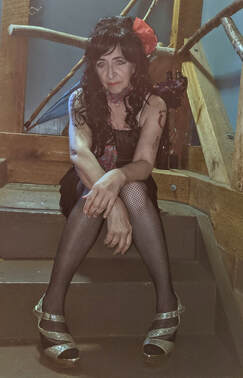 Amy Winehouse costume 2019 Amy Winehouse costume 2019 As I work on finishing up what is hopefully the final draft of my memoir, I find myself wanting to go back to writing my weekly blog posts. I love writing, although like any other writer, I have times of feeling uninspired. I’ve been consumed with the memoir and with songwriting and am ready once again to do even more. I was thinking today about the journey that brought me to my home in Petersburgh, NY. I thought about the Beatles’ song “Long and Winding Road.” It has been long and winding with adventures on both the east and west coasts, bouncing back and forth a few times always looking for something. Now, without even looking anymore, I’ve finally found it. It is peaceful indoors and out. Most days, I can sit in the yard or walk through the woods and listen to even the subtlest sounds because there’s no other noise. I can look up at the sky, and there are no wires obstructing the view. At night, it is dark. On a full moon, you can walk around in the moonlight, and if it’s a new moon, the stars are brilliant. This peaceful paradise has inspired me to write even more than I did before, and I’ve always been a writer. The first writing I did outside of school assignments and the occasional diary entry was writing headlines for articles in the newspaper where my dad was working as the editor. I was a young teen when he taught me the intricate art of headline writing. This was before computers when papers were printed with lead type. The headlines had to be succinct and catch the attention of the reader with something clever within the space constraints. It involved a certain amount of math because the letters were different widths. As a young adult, I started writing songs and poetry. In middle age, I started keeping a journal and did that for many years. Then I moved on to blogs and writing emails for a mailing list to promote my music. Not long ago, I went to a show in Albany and met someone who told me that he had been on my mailing list for around 20 years. It literally blew me away. When he told me that he’d been getting my emails for so long, I realized that I’d started writing them back when I was working with my former romantic and music partner as a duo, Cavanaugh & Kavanaugh, doing folk music. Having the same last name was one of those quirky things I always seem to attract that we capitalized on. I’ve been through a lot of changes since then. During that time, I started my own business, teaching music classes to families. I also went to Germany for two weeks to play music and China for two weeks to teach English through music. I started taking my songwriting seriously and released four CDs. In the last eight of those years, I started a new life, have had three major band configurations and have a collection of music videos that feature all of them to varying degrees. As my music has bloomed and grown, I’m reminded of the journey it's taken to get here. My main job for 40 years or so was raising children. Most families do that in a condensed way, but not me. Between children spaced apart and a grandchild who needed me, it was that many years of doing music but putting them first. I’m good at that kind of juggling, and there was a lot of fun along the way. Although I had been working as a musician when I was young, singing for weddings and various choirs, Paul Cavanaugh and I started out making music together on the streets. We became buskers when we lived in San Francisco and did it again later in Portland, Oregon. I learned a lot from that work and from the people I met who were doing the same. When we finally settled in Albany, NY, we put a band together and mostly played in clubs and events. We did a lot of cool shows and spent a lot of time making our posters to put up around town. I went to a party once where the kitchen was papered with show fliers, and many of them were ours. When I asked if they had ever been to a show, they said no but that they really liked the fliers. That made me laugh. For that reason, when I met the guy who’s been on my mailing list for so long, I asked if he ever read the emails. He seemed to kind of squirm a bit, and I felt bad. I hadn’t meant to make him uncomfortable; I was just curious to know if it was like the fliers. I never feel offended by things like that. Some of the most fun shows that I’ve done were shows with a theme. Paul Cavanaugh and I did two shows with songs written or performed by someone from every letter of the alphabet. The first show as titled “On Beyond Zappa.” Unfortunately, the set list is lost, and I can’t remember every song that we did. I do remember covering “Making Plans for Nigel” by XTC. The second one was “On Beyond Zevon.” For that one, we cheated a bit and sang something covered by Xavier Cougat. A few of the other letters in those sets were The Allman Brothers & Animals, Byrds & Beatles, Crosby, Nash, Stills and Young & Creedence Clearwater Revival … Eagles & Duke Ellington, Fleetwood Mac, Grateful Dead … Jefferson Airplane, Steely Dan, Talking Heads … Velvet Underground … Frank Zappa & Warren Zevon. We even passed out sheets with the letters and gave out a prize to anyone who could fill in every one of them. After doing the song for “z,” we did a few originals for “on beyond. Sue R., who came to all our shows, was the only one who knew them all. I would love to pull that off again sometime. For a few years, I hosted a Masquerade Open Mic at various venues including The Low Beat and The Rustic Barn. To sign up for the Open Mic, you must be dressed as a musician you admire and cover at least one of their songs. I’ve been everyone from Bob Dylan to Amy Winehouse. Some folks, including me, always go all out while others tend to minimize their costumes. Either way, everyone agrees that it’s a lot of fun. Some of them even started thinking about their costumes for the following year right after Halloween. It started out as a private party and got too big for my small home, so I found larger venues for it. During the COVID-19 shut down, I did one outdoors in our yard. It was a cold day, and only a couple of people showed up. This year, I waited too long to secure a venue, so it will be a private party again. I’m love thinking about not only the musician I will be but which of their songs I’ll do and what kind of crazy costume can I come up with. I must admit that so far, Amy Winehouse was my favorite costume. I even sent away for Amy Winehouse temporary tattoos, did the eye makeup and wore the most uncomfortable shoes ever. I eventually took off the shoes, and it was worth all the effort. Paul and I, with our band General Eclectic, even did two acid tests in Albany, NY in the late 1980s. We’d planned on doing three but never pulled off the third. Those were both unbelievable experiences with Kool-aid, films, a light show and multiple bands of different genres. They had been advertised only by word of mouth with clues included on the posters. For those shows we were General Eclectic, the Eclectic Kool-aid Band. Both shows were packed with overflow out on the street and in the two apartments in the same building. Now I have another band and have been pondering what comes next. I’d like a new theme to work with, something fun and unique. I don’t know what it is yet but stay tuned. I’m sure I’ll come up with something unusual. I think that often, because I tend to be quiet, some folks don't realize how much fun I can be. 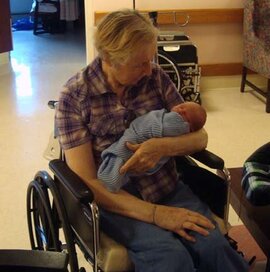 Today would have been my mother's ninety-second birthday. Twelve years ago today, she was in a nursing home having suffered a massive stroke. Unfortunately, she wasn't found for a while, so there was a lot of irreparable damage to her brain. She could no longer walk or talk. She could barely manage to sit in a wheelchair and for only a limited amount of time. She no longer knew what letters were and had no means to communicate. She had always been the life of the party, with friends of all ages. At eighty years old, she had still been working part-time. She was the matriarch of the family, the dominant member of my parents' marriage. She and I had never gotten along. I always knew that she loved me, as a mother should, but I was sure she didn't like me very much. When she became so disabled, I spent everyday reading to her, bringing other family members to visit and helping her to achieve whatever level of recovery that she could. Maybe I was able to do this because of our detachment. Or maybe I did it out of guilt for not turning out the way she wanted. Whatever the reason, it turned out to be monumentally healing for both of us. I was able to be myself without being afraid of her criticism and disapproval, which was constant. When she died, I was no longer afraid. It felt like someone had flipped a switch and all of my shyness dissipated. On her birthday in 2010, I brought my son and his family to visit. Their son was just four days old. I put him in my mom's arms and watched with tears in my eyes as she held him tightly for a full ten minutes, gazing lovingly at him. Then I realized that she was tiring and took him back. At the end of the summer, just around my birthday, she had another stroke and was not going to recover from that one, so we had to let her go. She was a strong woman, full of fire and lingered longer than anyone expected. But, she finally gave in. Although, we struggled in our relationship, I miss her. I often want to call her for some advice about one thing or another. After she was gone, I realized that she had probably always done the best she could, having come out of her own tumultuous childhood. Both of my parents were very involved, though I often felt as though they were too involved, especially Mom. It's hard to feel resentful about the horrible things that happened when there were also so many wonderful things mixed in. My dad gave me music, writing and an artistic eye. Mom taught me things like gardening and healing arts. They both taught me how to parent and how not to parent. But most of all, my mother taught me to be strong and resilient in the face of overwhelming odds. I wish I could tell her that now. 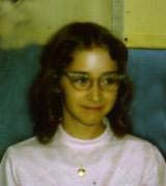 I've been missing writing this blog but have been working on the memoir. I decided to show you an excerpt of an incident from my early life. which has always been filled with crazy adventures - not always pleasant. After this incident, I gave up on my pipe dream to be in the Winter Olympics but watched every movie that Tony Curtis was in. My mom was a very social person, making friends wherever she went. Dad was shy, and depended on mom in unfamiliar situations, but he loved being social with his friends. They were part of a large circle of friends, chosen family really, who all loved to get together and party. My brother and I were included in most of these activities. Two of those people were Aunt Marie and Uncle Ketchum. I’m not sure why we called him Uncle Ketchum instead of by his first name. No one else called him “Ketchum.” I seem to remember stories about my brother getting confused when he was very young and starting that, but I’m not sure they are real memories. They were very interesting people, originally from the south. They had designed and built their house. He worked for the water department. She was a housewife but also had some kind of part-time job. There were older books and toys at their house for us to entertain ourselves with and beautiful antiques all around, too. One of my favorite rooms was a guest bedroom that had a big old four-poster bed with a rope frame, a flouncy bed skirt, thick down pillows and comforter, a canopy overhead and a mattress so high that I needed to stand on a chair to climb up on top. In that room were china dolls and an antique pitcher and washbasin. Aunt Marie didn’t pay a lot of attention to us kids, but she was sweet. Uncle Ketchum was loud and a little scary to me. He had a gun collection that filled a large upstairs room. The guns of all shapes and sizes were locked in glass cabinets inside that locked room. I only got a peek in that room a few times, but it was impressive. Unfortunately, he also owned a small cannon that he fired off every Fourth of July, with the Confederate flag waving, in the direction of his neighbor’s house, though not actually aiming for the house. His neighbor was Jackie Robinson. In 1963, at age 10, I was noticing racism and knew this was wrong, but kept my mouth shut. By that time, I knew pretty well how to become invisible. I also remember hearing my dad grumble about it every year on the way home. One of the big draws for all of us was that they also lived on a lake that was an offshoot of the local reservoir. We fished and swam there during the nicer weather and skated in the winter. There were not many houses built there yet and often no one else out on the water, especially in the cold weather. I could skate fast and free, gliding and twirling on the ice. One day, they invited me to sleep over so I could continue to skate the next day. I jumped at the chance even though I was a little afraid of Uncle Ketchum with his boisterous ways and didn’t really know Aunt Marie, though she seemed like fun since she smiled and laughed so much. Anyway, I was offered the spare room with that big, beautiful bed. I woke up feeling like a princess, surrounded by pouf. I was coddled and cooed over. It was heavenly. After brunch, I went out to skate. I was a little surprised that Aunt Marie didn’t come out with me but pleased that she trusted me enough to go out on my own. Yes, I knew the rule, “never skate alone,” but she was the adult who lived there. She must have known that it was safe. I went out, cautiously at first, but soon lost myself in the freedom and delight. I did my figure eights, skated backwards, adding spins and flying around on the ice. Then I noticed, out of the corner of my eye, a patch of darkness in the middle of the lake and skated toward it to investigate. Too late, I realized what it was and plunged into the icy water. I managed to swim up to the surface and call for help, thinking, “Never skate alone, never skate alone!” There was no one around. I went under again. Fighting back the panic and realizing that I would have to save myself, I started grabbing on to the ice, trying to pull myself out. The ice kept breaking, dunking me under again and again. At one point, I fell in and came up under the surface of the ice. This time I really started to panic, thinking I was going to die. Then I immediately remembered a movie I had recently seen about Harry Houdini, starring Tony Curtis. In the movie, one of his tricks went bad and he ended up trapped under the ice in a river. He swam to the surface and took gulps of air from between the ice and the water. He eventually found the lightest spot and knew it was the way out. Isn’t it funny that from outside the water, it’s the darkness you have to avoid, and underwater you swim to the light? I found the pockets of air and eventually the hole. Once again, I started breaking the ice toward the shore, continuing to try to call out. I was tired, weighted down with skates and heavy winter clothing and couldn’t feel my lower body anymore. I decided to give up about six feet from safety when I suddenly heard the sound of a car coming in the driveway. Their sixteen-year-old, very cute son heard me, came with a long board and rescued me. I had no feeling in my legs at all and couldn’t even stand, so he carried me into the house where his mom, Aunt Marie, was passed out from drinking. He took off my skates and coat, piled me with blankets, managed to rouse her, and she helped me out of my wet things and into a warm bath. My parents came over very quickly and whisked me out of there. I never stayed the night there again. I also never swam underwater again. I love the water. I am often the first one in, and I’ve taught my kids and most of my grandkids to swim. But I still panic a little when my feet can’t touch the ground. It’s taken me decades to be able to put my face in the shower, and I always wish that I could get over that trauma and really swim again. And, I've always maintained those crushes on that sixteen-year old and Tony Curtis, both of whom saved my life.  Happy New Year! Every new year, I try to write something. This past year has been equally wonderful and difficult for me. There have been issues within my family, financial and emotional struggles. There have also been new beginnings, lots of productivity and great musical endeavors. Although, I can’t say that I’m sorry to end 2021, things are still uncertain and fluid. Who knows what 2022 will bring? Some of us are floundering, trying to hold on while the storm rages around us. Others have found a sense of calm and acceptance. I keep going back and forth between both. So far anyway, I haven't felt angry as many others do. Yesterday, I heard an “At Home” interview with Allison Russell on WEXT radio at noon. When speaking about facing and writing about adversity, she referred to us all as “descendants of survivors.” That one phrase stuck with me. It feels so hopeful. It means that the reason all of us are here on earth at this moment is because our ancestors who came before us survived whatever turmoil assaulted them. Eventually we all lose the ultimate battle but until we die, we continue to survive not matter what comes our way. I have done a lot of surviving in the course of my life and certainly plan to keep it up. How about you? Life can be hard, but there’s always something new just around the corner. As I begin a new year, especially after ending such a tumultuous one, I like to reflect on, not only the past, but also the future. My partner always chooses a project to do on New Year’s Day that reflects the coming year. Sometimes it’s a construction project or a major clean-up project outdoors. Today, on this rainy, damp day, it’s video editing. I like that approach of using New Year’s Day as a paradigm for the rest of the year. It’s much more forgiving than making resolutions which, when broken, can set us up to feel badly about ourselves. I always prefer to take one day at a time. In 1975, I bought a copy of Baba Ram Dass’ book “Be Here Now” at a new and used bookstore in Santa Cruz, California. It’s quite old and worn out now with its pages a little tattered and falling out and both covers gone. The paper itself feels old and seems to disintegrate in my hands, so I rarely read it, but the concept has guided me along the way. I wondered about the paper that was used when it was brand new. It felt old and fragile even then. Maybe it wasn’t meant to last long. Using New Year’s Day as a model for the rest of the year seems like a good way for me to be here now. So today I am writing. I have already practiced music and will soon go for a walk. The writing is easy for me to do. I have always loved to write. My dad was a newspaperman and instilled a love of reading and writing in me. He was strict about spelling and grammar. But he also encouraged creativity. When I was in high school, he started teaching me how to write headlines. Back then, it wasn’t done by computer. You had only a certain amount of space in which to get your point across. The letters were different sizes, so it became like a puzzle. You had to figure out what words to use that would fit into that space while still trying to be clever. I think that exercise in writing could be why I tend to write succinctly now. Dad also gave me the invaluable gift of music. There was always music around when I was a child. If there wasn’t a record playing, then we were singing. We sang after dinner around the dining room table, and we sang in the car. There were always lullabies before bed and random songs throughout the day. We had songs for bath time, every holiday, songs about historical events and for every situation. Then there was dancing. Mom and Dad sometimes danced together. I learned to dance the Jitterbug, Charleston, Lindy Hop, Cha Cha, Waltz and more by standing on Dad’s feet until I knew the steps. Once I could do them on my own, we would dance together swaying, twirling and dipping. Dad’s whole family was musical. One of my great-uncles played tenor banjo in vaudeville. Another great-uncle played organ for silent movie houses, and my grandmother played beautiful classical piano on her baby grand. I have always lived and breathed music. I figure it’s got to be part of my DNA. That said, I often have to push myself to practice every day. Hopefully, doing it first thing today has set the tone for the rest of the year. Getting enough exercise is by far the toughest one for me to do regularly. At 68, it’s important for me to exercise every day. In the nicer weather, I’m gardening, swimming and being more involved in social activities like music festivals, parties and the like. I’m always moving when it's nice out. I‘ve also been teaching my classes outdoors in the warmer weather, and they are fairly physical. Unfortunately, in the winter, I have very few classes because it's just too cold to teach outside, and folks are still leery of being indoors with their children. I don’t blame them. When it’s cold, unless there’s snow for snowshoeing, the things I love to do, music and writing, are indoors and have me sitting for the most part. I’ve always looked at winter as my hibernation time. That’s when I get more organized and do more physical art like various crafts. So, I need that little extra push to go out and walk right now. I hope today is the start of a regular routine, but I am still going to try taking it one day at a time. Starting right now, on this day, I'm heading outside to hike in our woods. I've been neglecting this blog lately because I'm working on completing my book that consists of the memoirs I previously posted here. It's coming along and is way more than halfway done. I hope to send it to an editor and have it published in 2022 or early 2023. Today, I was rewriting some of my trip across the country when moving from the coast of Oregon to Upstate New York in 1982. We traveled in our VW bus with myself, my husband, two young children, our cat and as many of our belongings that we could cram in there, breaking down in every state along the way and taking three times longer to make the journey than originally planned. As I rewrote about our unplanned stop in Ohio and the significance of the song "She'll Be Coming 'Round The Mountain", it got me thinking about the soundtracks of my life.
We all have them, right? For me the soundtrack of my earliest years was Big Band, Jazz, Blues and Classical music. As a preteen and teen, it was mostly The Beatles and Motown. When my partner and I were out to dinner last night, I heard "God Bless the Child" sung by Billie Holiday and remarked that I owned a "Lady Sings the Blues" songbook as a teen. I was taking piano and voice lessons at the time and trying to survive horrendous high school years filled with bullying and a severe physical disability. That songbook was part of my survival. After a particularly hard day at school, I would come home and work my way through that book, playing and singing my heart out until I felt as though I could function again. After I graduated from high school, one of the songs that stands out to me is "The Taxi" by Harry Chapin. I remember vividly driving around in 1972, getting high in my car and loudly singing along, especially the line "I go flying so high, when I'm stoned." Another one was “Maggie May” by Rod Stewart and the whole Tapestry album by Carole King. Later on, I discovered The Grateful Dead. When my marriage was dissolving, or more like exploding or erupting, “Brokedown Palace” by The Dead always made me cry. Then, when I finally left my husband, Bonnie Raitt’s “I Can’t Make You Love Me” let me cry my heart out and eventually find healing. I later found out that he was crying to “Total Eclipse of the Heart” by Bonnie Tyler, which I would never have guessed. Music has always been my best medicine. Writing my own music helps me articulate feelings that might otherwise be buried. Most of those songs never go out to the public. Occasionally they surface, but they’re really meant for me. We all have our own coping mechanisms, and we all have our own relationships with music. I wonder what your soundtracks have been. Mine are ever-evolving. Halloween has always been a favorite holiday of mine, and I’ve had a wide variety of experiences on that day. We always made our own costumes. Mom was very creative and loved doing crafts. One year I was a television. I wore a cardboard box that was painted and had the front “screen” open to show my face. There were dials on the front and a curtain hung below so you couldn’t see my feet. I was the start of the show. Another year, I was the headless horseman. This time, it was a cardboard box that I wore around my waist with the horseman’s legs made of construction paper hanging down and a hobby horse head attached to the front. I wore a shirt with the collar on top of my head and the shoulders held out with a stick. I carried a carved pumpkin for my head, and my feet were the horse’s feet. Other years I wore my father’s sailor uniform from WWII and my grandfather’s infantry uniform from WWI. My mom and dad were also fond of dressing up. One year my parents were invited to a Halloween party for adults. Mom went dressed as a beatnik with a long platinum wig, a beret, wearing tight black pants with long false eyelashes and long cigarette holder. Apparently, she flirted with all of the men there. Because she wasn’t wearing her glasses, a lot of them didn’t recognize her, and Dad was embarrassed and furious when they got home. Another time she dressed as a Native American, though at that time she referred to it as an Indian. She sat cross legged on the front lawn with a plaid blanket around her shoulders, a feather headband with an arrow going through her head. I was mortified, but she thought it was a hoot. We lived on a hill with two sets of stairs going up to the front porch. It was a long climb, and many kids didn’t bother. When they did though, they commented on the “Indian” we had on our front lawn. As they got a little closer, mom stuck her hand up and said “Ugh, how!” They ran off screaming and must have spread the word since there were fewer kids than usual that year. My freshman year of high school, some of the kids made a little effort to befriend me. I later found out it was out of sympathy for my disability and not out of any true friendship. But at the time, I enjoyed being invited to a couple of parties. I was having fun at the Halloween party that fall until Mom and Dad came to pick me up dressed as that beatnik and Superman. Dad was the City Editor at the local paper at the time and a columnist. He had gotten the superman suit when he was roasted that year. You know the whole Clark Kent comparison. The kids at the party lost it when they entered the house, but I was embarrassed. It became a source of relentless teasing from those same kids in the weeks to come, and I wasn’t invited to any more parties. When I met Paul Cavanaugh, I discovered that he also loved Halloween and was fond of dressing up. Our first Halloween together, we dropped a bunch of acid and threw a party. One of our friends had just bought a new guitar and invited Paul to play it. Before long we noticed that, because he was playing without a pick, and playing hard, his fingers were bleeding … all over the finish of that new guitar. We decided to go for a walk to get away from the scene for a while and sometime during that walk, we decided to go back to the house, find the half empty paint cans that were left in one of the closets and paint LSD on the main street going through town. When we opened up the first can, there was a hard film on top. Paul decided, while holding it upside down, to bang on the bottom. The paint came out in a big puddle in the middle of the road. We heard a car coming, so we ran to the sidewalk and tried to act nonchalant as we slowly walked along. The car was going fast, hit that puddle with a huge “Sploosh” and fishtailed back and forth before turning around in the gas station a block away and slowly cruising by us. We were laughing so hard; we could hardly stand up. As we leaned against each other for support, we realized that it was a police car. We tried to stop laughing, but that realization and the acid we were peaking on, made us laugh even harder. We were certain that we were going to be arrested, but the cops just kept driving. We decided that we must have been invisible, so we went back for more paint and successfully wrote LSD on the road. When our kids arrived, we got creative with their costumes and always helped them make them. Our oldest son at around eight months old was a “rug rat” on his first Halloween. Of course, there were the usual witches, ghosts, gypsies and superheroes, and it was always fun. Then Paul and I moved to Albany, NY in 1982 and started going to wild costume parties. Paul got a kick of wanting to wear a business suit every year. One year he was the “nun of your business” while I was the night sky. Another year, he was “E.T. – extra testicle, the businessman with more balls.” I even sewed a tennis ball inside of layers of nylon stockings onto the outside of his pants. He carried a briefcase with the biggest screw he could find inside so he could take it out and “screw” people. That year I was a nuclear family wearing a grotesque hat with multiple heads coming out of it, an extra arm sewn to my back and other deformities. Another year I was a “Japanese Beatle” wearing a kimono, my hair in a bun with chopsticks sticking out and an old hamster cage with the top and bottom removed and photos of each of the Beatles on each of the four sides resting on my shoulders. That year, Paul was “The Stoned Ranger.” He wore a badge and a cowboy hat and had a bandolier across his chest holding joints instead of bullets. Like I said, we loved Halloween.
After we had separated and Paul had passed on, I came up with the idea of hosting a Masquerade Open Mic. It started out in my home. I often threw big music parties and liked doing it on Halloween. That first year, I was looking for something a little different. It was quite a success. I dressed as Bob Dylan. We always had a great variety of musicians with very few doubles, though we did have two Dolly Partons at the same party and Cyndi Lauper made an appearance at two different parties. When I moved to Petersburgh, I hosted one of these but soon realized that the house was too small for indoor parties, so I went in search of a venue who might be interested in this unusual Halloween event. The first couple were at the Low Beat, then I moved it to The Rustic Barn where I dressed as Amy Winehouse. The first couple of these events that were held in the bars, my current partner carved dead musican pumpkins. The first was Elvis, and the second was Jim Morrison. Over the years, I’ve also been John Lennon, Billie Holiday, Diana Ross, Joni Mitchell, Neil Young and Donovan. I already have my character chosen for next year although I often change my mind at the last minute. I guess we’ll all just have to wait and see. A FINE COAT (10/20/2021)
I’ve been struggling over what to write next now that my memoir is essentially finished. For years I was not really sure who I was. I’ve become reborn every 20 years to start a brand-new life. Maybe that should be the topic but, for the record, I’d like not to start again when I’m 80. My latest rebirth was wonderful and rewarding but also extremely hard. It was also the most radical of them all so far, and I am still reeling after 7 years. I’ve worn my independence like a warm coat, keeping me safe and protecting me from the elements, but it was not easy to come by. For the first 20 years of my life, I was completely under the thumb of my parents. I was only allowed my own thoughts because I mostly kept them to myself. I never shopped for my own clothes or even chose what outfit to wear until I moved out. This may seem unbelievable to you, but my mother had an iron fist, and my dad had a leather belt. When I was a younger teen, I finally ran from him, when he whipped out his belt. I called from the neighbor’s house threatening to tell everyone in town about the beatings if he ever hit me again. An influential figure in town, he stopped, but my mother’s techniques were harder to deal with. When I had my own apartment, she found out that my lock was broken and started driving to my home early in the morning and walking into my bedroom, where I was asleep with my boyfriend, to be sure I got to work on time. That was one of the biggest reasons I left Connecticut and never looked back – My first rebirth. For the next 20 years, I was with my husband, traveling around the country via thumb then, once we had children, in a variety of vehicles. Those were wild and crazy days and very hard. He was the first person who saw me for who I was and truly loved me. As much as he loved me though, he was suffering from Post-Traumatic Stress Disorder from his own violent and nightmarish childhood. He was often angry and mostly focused that anger at me. When he did aim it at our children, I got in the way, deflecting away from them and onto me instead. I fought with him constantly, trying to maintain a sense of myself, trying to hold on to that coat of independence, trying to survive. He threw things and raged, frightening us all. Like so many abused women, I felt trapped and ashamed. But, I had also grown up in a similar environment, so it felt normal. I thought this was what relationships were about, passion and brutality. I remember going to a counselor who referred to me as a battered wife. “No,” I said, “He’s never hit me.” She sighed and explained that there were so many forms of abuse, and, at that moment, I realized that I’d been battered my entire life. When I finally left that situation, it was in large part due to the help of a couple of friends who had been watching me slowly fade and whither. I left with my 3-year-old son and a couple of suitcases, leaving my older son with his dad, hoping they would bond and aware that he was starting to treat me the same way that his dad had modeled for him. By the time I finally left, I wanted nothing to remind me of my time spent with Paul. I just wanted out and, it felt like if I didn’t get out immediately, I might never be able to leave. Over the next few years, I did go back and take some household things and items we had accumulated together. One of the hardest things about that leaving was the reaction of others. Everyone loved Paul and only saw his public side, the happy-go-lucky joker who would give you the shirt off his back. And, he really was a great guy. Once we weren’t living together, we became very close friends. He even lived in my house for a few days while he was dying. Hoping to start this new life single, I kept to myself, declining invitations to go out dancing with friends. However, a friend brought my next lover over to jam one night, and that was another beginning. I thought this man was the love of my life. He was angry but never aimed it at me. I overlooked his bullying and stubbornness because it was less than I had been living with, and I still believed that all relationships were stormy. This was a calmer storm and definitely full of passion – for about a year. Then, things started cooling off. Eventually, the anger started being directed at me, then 20 years later, after making too many excuses, I finally left. Now, here I am again. This time I didn’t leave things behind. This was partly because I was left to pack up and clean alone, even though we were both moving out. The landlady was a friend, and I didn’t want to leave her with our mess. I also didn’t want to leave with nothing again. So I packed and purged, crying my way through it all. I had accumulated too much stuff. I raised three children and a grandchild, had housed all three of my children during their childhoods and for varying amounts of time as adults and even housed their partners and children. Everyone left things behind for me to deal with. I even had some of Paul’s things, including his ashes. Once again, another 20 years later, I embarked on another new adventure. I was without children in my home for the first time in 40 years. Two of my three children and two of my three grandchildren had moved away soon, and I was partially estranged from my third child. Once again, after resolving to stay single, which I can’t seem to pull off, I fell in love and moved in with that new love. He took me in with all of my past possessions and emotional baggage. He is patient, encouraging and supportive. He doesn’t insist on trying to change me or have me think his thoughts. He is interested in what I think. He isn’t an angry man. He is entertained by my quirkiness instead of being disgusted or aggravated by it. He wants to help me and care for me. He is the first person to insist on carrying my heavy bags instead of watching me struggle under the weight of them or yell at me because I’m not keeping up. He is even reluctant to make suggestions lest he seem critical or pushy. And, after all this time, I am still on guard. The past is hard to put behind me. At sixty-eight years of age, I finally know who I am and what I want. I was given time and a wonderful space in which to heal. I feel as though I went on a retreat for the first couple of years living here, retreating into myself to try to find solace and understanding for all I have been through in my lifetime. Then the pandemic came, allowing me to spend copious amounts of time at home. For the first time in my adult life, I wasn’t rushing around going to event after event and working too many hours. Although, I no longer feel actively afraid, I often try to explain to people that I am akin to a rabbit, always on guard and ready to flee at the slightest hint of danger. Over the last decade, I’ve been trying to let go of physical things, kitchen things that can be replaced if I move out again, clothes I don’t wear, books I’ll never read, linens, all the things I had for running a household, even some of my furniture. But I can’t seem to let go of my old wool coat. It occasionally grows mold and hangs in my closet endlessly too frayed and worn with the sleeves a little short for me. It doesn’t have any real significance that I can think of, but I can’t seem to let it go. When I consider giving it up, my heart feels like it is ripping in two. It’s just a coat, but it’s a fine old coat that still has many years of warmth in it. Maybe it’s a symbol of that independence I have struggled to maintain and have so often left behind. Maybe this time I can hold on to it. And maybe someday I’ll happily pass my coat on to another who needs it. |
Archives
January 2024
Categories
All
|

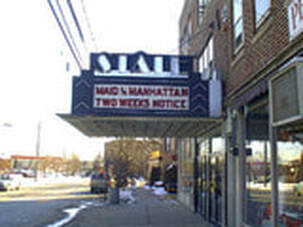

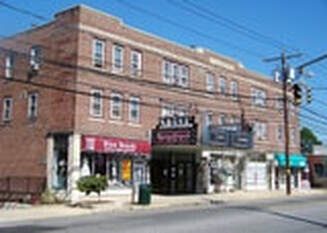

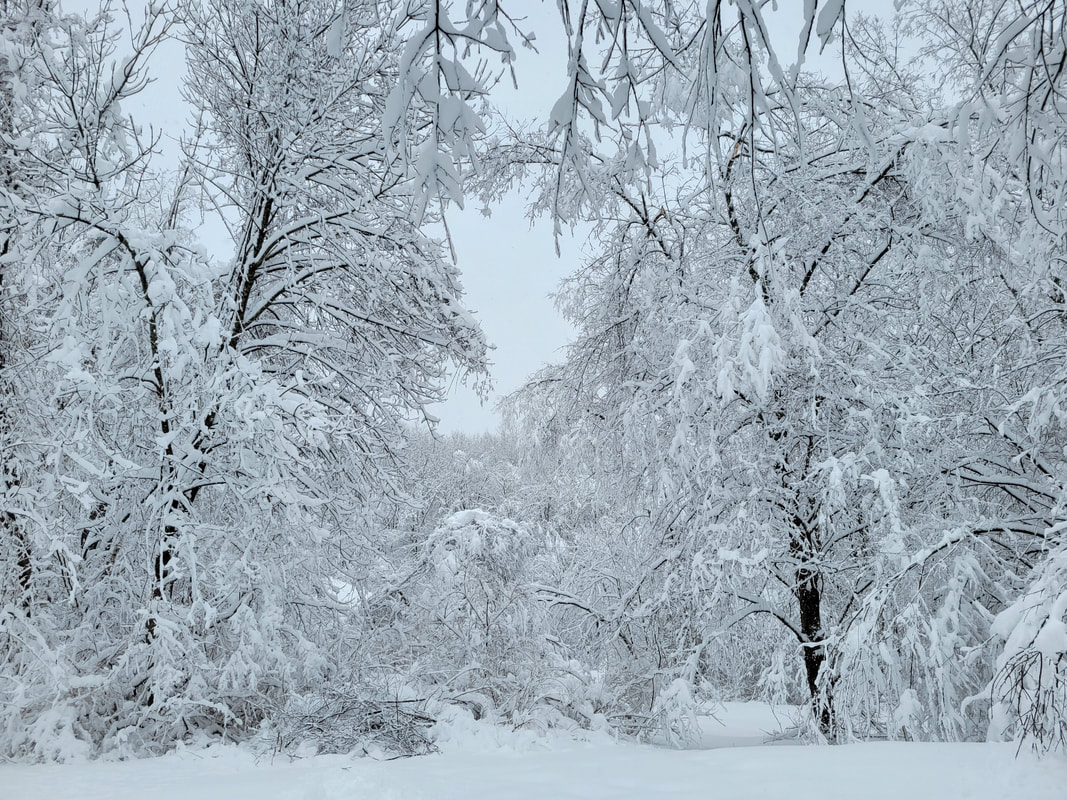
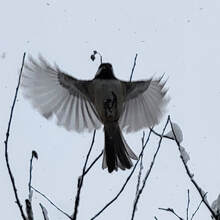
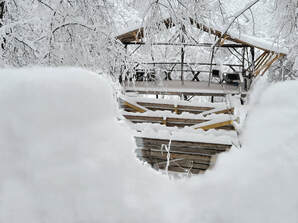
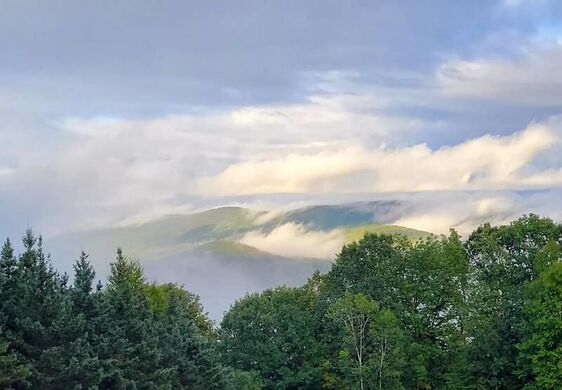
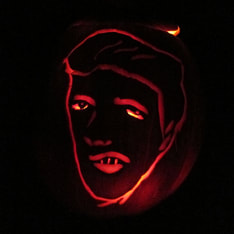

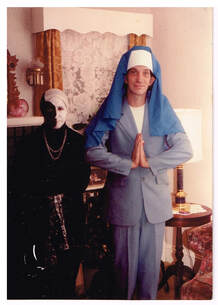
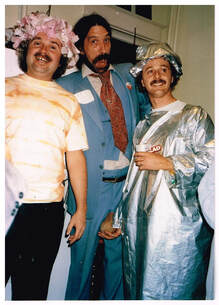
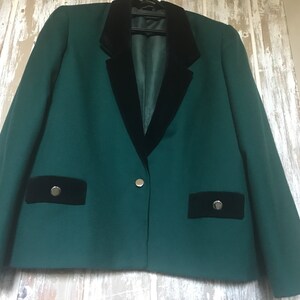
 RSS Feed
RSS Feed